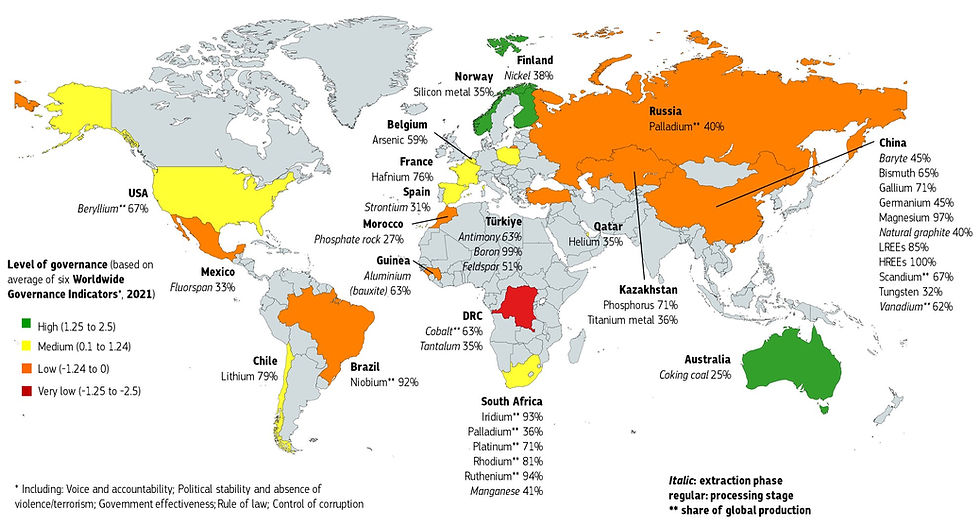The Lobito Corridor: Connecting Africa's Critical Minerals to International Supply Chains
- Leticia Jauregui Casanueva
- Feb 17, 2025
- 2 min read
The Lobito Corridor, a massive railway project connecting Central Africa's mineral-rich regions to global markets, represents more than just infrastructure development - it's a strategic pivot in the race for critical minerals.
Originally built in 1928 as the Benguela Railway, this historic trade route is experiencing a renaissance through a $3 billion investment backed by the US and EU. The 1,289-kilometer railway will connect the copper belt of Democratic Republic of Congo (DRC) and Zambia to Angola's Atlantic port of Lobito, creating a vital export pathway for the region's critical minerals.
What makes this project particularly significant is its geopolitical context. With China currently controlling 80% of DRC's copper mines and dominating global critical mineral supply chains, the Lobito Corridor represents Western efforts to diversify access to these crucial resources. The project, operated by a consortium of European companies including Portugal's Mota-Engil and France's Trafigura, marks the first major US infrastructure initiative in the region.
The corridor's recent expansion to include Tanzania adds another dimension, potentially creating a trans-continental railway connecting the Atlantic and Indian Oceans. However, experts suggest that while the project (expected to complete its Zambian extension by 2029) will enhance regional integration, it may not significantly reduce China's influence in the sector.
This initiative reflects a broader shift in global infrastructure development. Unlike China's Belt and Road approach, the Lobito Corridor aims to create broader economic benefits through connected investments in agriculture, digital communications, and healthcare. As global demand for critical minerals continues to surge, this historic trade route's revival could reshape Africa's role in the global supply chain - though success will ultimately depend on regional stability and continued international cooperation.





Comments